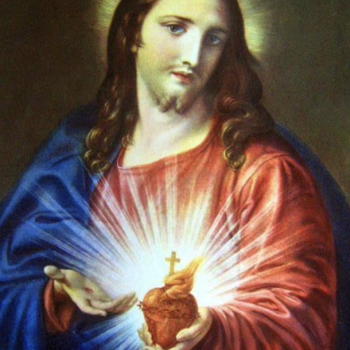This week’s question:
I’m interested in learning more about the Christian philosophy. I do not identify myself as a religious person but I’m very philosophical, which consists of reading philosophy everyday as well as considering going to graduate school for philosophy (ethics). Anyways I would really appreciate a general overall look at what Christianity really is as well a more in depth view of its philosophical, not religious, understanding. Is there any possible bible books or excerpts I can look at or any other resources outside of the bible?
Christian philosophy is not an easy topic to sum up in just a few words. In many ways it is a well spring from which most western philosophy in the last 2000 years or so has drawn from. The earliest Christian Philosopher was probably Justin Martyr, however even the New Testament creates it’s own philosophical landscapes drawing on themes from the Hebrew Scriptures, pseudepigrapha and other ancient near eastern traditions. As time went on many Christian thinkers began to incorporate philosophical ideas into their theological reflections, this project was perhaps most notably undertaken by Origen who attempted to synthesize Neo-Platonism with Christianity and was very influential in re-framing the intellectual imagination of Christianity into platonic categories.
In the west the two most important philosophers are probably Augustine and Aquinas. Augustine helped cement many of the philosophical elements that have underscored the western theological tradition found in both Catholicism and Protestantism. Aquinas helped bring a new level of clarity and precision to scholastic thought and cemented a revived Aristotelian philosophical interest in the West into the platonic and Hebraic elements of Christian philosophy.
In the east the most influential thinkers are probably the Cappadocian fathers, John Chrysostum, Symeon the New Theologian, and Gregory Palamas. The Cappadocian fathers are Basil the Great, Basil’s younger brother Gregory of Nyssa, and Gregory of Nazianzus. All of these thinkers bring their own contributions to christian philosophy and help define a more eastern philosophical emphasis. This philosophy maintains a more platonic vocabulary and emphasizes participation in God’s life a bit more than western philosophy.
In recent years Christian Philosophy has taken a number of interesting turns. If you are interested in learning more about some of the philosophical projects that have a lot of influence today I recommend reading Faith Maps by Michael Paul Gallagher, The Quest for the Living God by Elizabeth Johnson, and The Mystical Theology of the Eastern Church, by Vladimir Lossky.You can also check out my friends over at homebrewedchristianity.com who have interviews from a wildly diverse collection of philosophers and thinkers active in the world today.
Much of Christian philosophy is characteristically theological. Philosophy is even called the handmaiden of theology in many Christian circles. Because of this it is important to understand that frequently in Christian philosophy when dealing with God technical philosophical terminology will be used but only in an attempt to point toward aspect of God which are understood as beyond the capability of the philosophy to address. This will often result in theology that is inherently paradoxical (eg. In the Catholic Eucharistic understanding the substance is changed but the the accidents remain the same, in the creed Christ and the father share one ousía although they have distinct hypostases). These kinds of formulations employ philosophical categories to try to explain how God has revealed himself in Christ. In situations like these Christ is the starting point and philosophy only provides the language that is used to articulate the revelation in a way that can be grasped by those familiar with the philosophical cosmology.
Another trait of theological philosophy is it’s preference for Apophatic theology over and against Cataphatic theology. This means that in general theologians will tend to speak only in terms of what may not be said about the perfect goodness that is God rather than attempting to define God through positive (clear and definite) terminology.

















